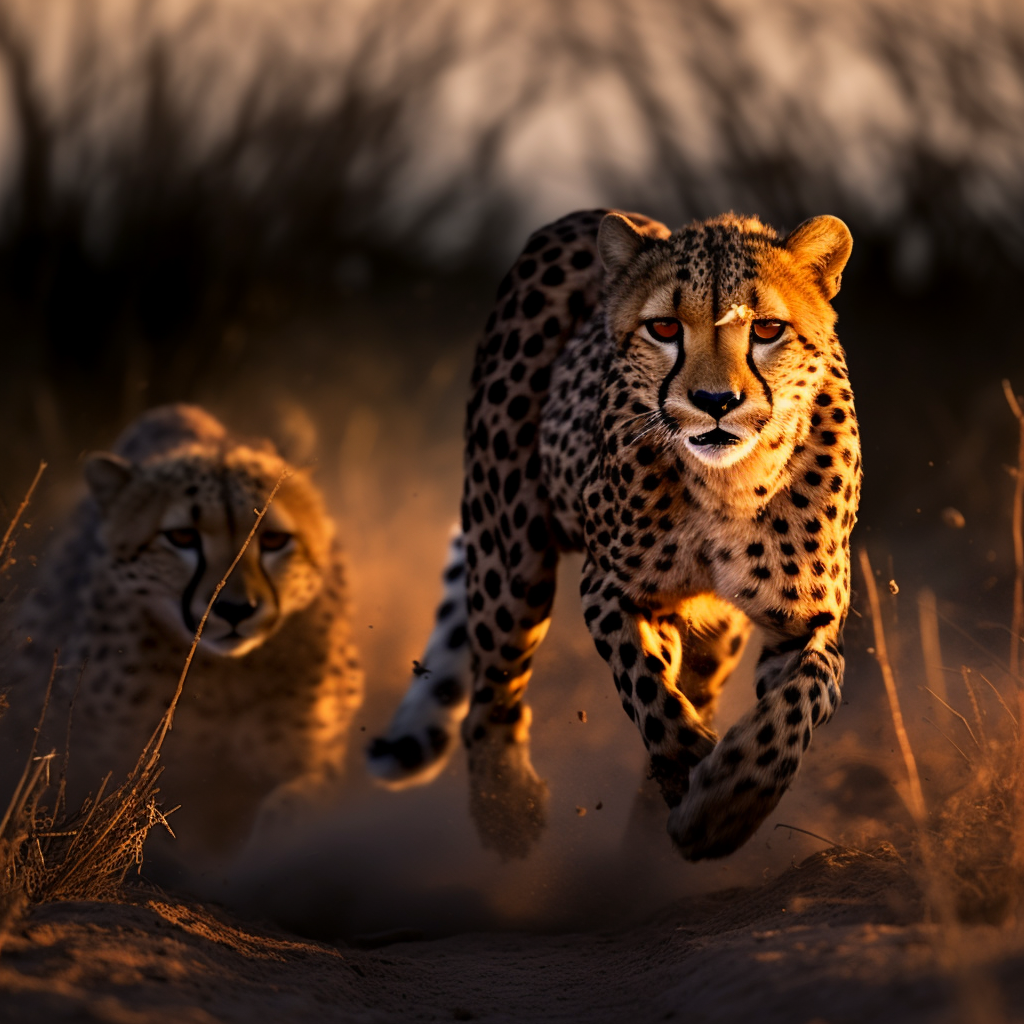
Cheetahs, known as typical daytime hunters, have recently been spotted shifting their hunting hours to dawn and dusk during hotter weather. This shift in their hunting pattern has led to increased conflicts with nocturnal predators like lions and leopards. These intriguing behavior patterns of large carnivore species and their dynamics are reportedly affected by changes in temperature, as revealed in a study led by University of Washington biologist Briana Abrahms.
Cheetahs, who are unique in their dietary preference for fresh meat, often find themselves losing their kills to bigger predators such as lions and leopards. This not only poses a threat to their survival but is also a significant factor in the increasing conflicts between these big cats. During the warmest days, the behavior of cheetahs leans more towards nocturnal, causing an increase of 16% in their overlap of hunting hours with rival big cats.
The study, which aimed to explore this phenomenon, involved placing GPS tracking collars on 53 large carnivores over an extensive period of eight years. The researchers then compared the animals’ activity patterns with the maximum daily temperature records. The results provided concrete evidence of the impact of temperature changes on the behavior of these creatures.
Moving forward, researchers are planning to use audio-recording devices and accelerometers in the next phase of their research. This will enable them to document the frequency of encounters between large carnivores more accurately and efficiently.
However, the changing temperatures could severely impact the survival of cheetahs. Climate changes predicted to make parts of Africa much warmer could pose even more significant threats to these creatures. Cheetahs, recognized as the fastest land animal and the rarest big cat in Africa, are already under severe pressure due to habitat fragmentation and conflict with humans. These climate changes could exacerbate their situation, further threatening their survival. Researchers and conservationists are, therefore, closely monitoring these environmental changes and their effects on cheetahs and other large carnivores.
Science4Data is committed to cut through greenwashing and measure real impact. Join the journey to a sustainable future. Your actions matter.






